Pedaling for Pancakes
For the organizer of the Joe Cosley Pancake Ride, a no-frills, 150-plus-mile gravel bike race in northwest Montana, the ride’s epic dimensions are dwarfed by the caliber of its riders — and by the stacks of pancakes they eat along the way
By Tristan Scott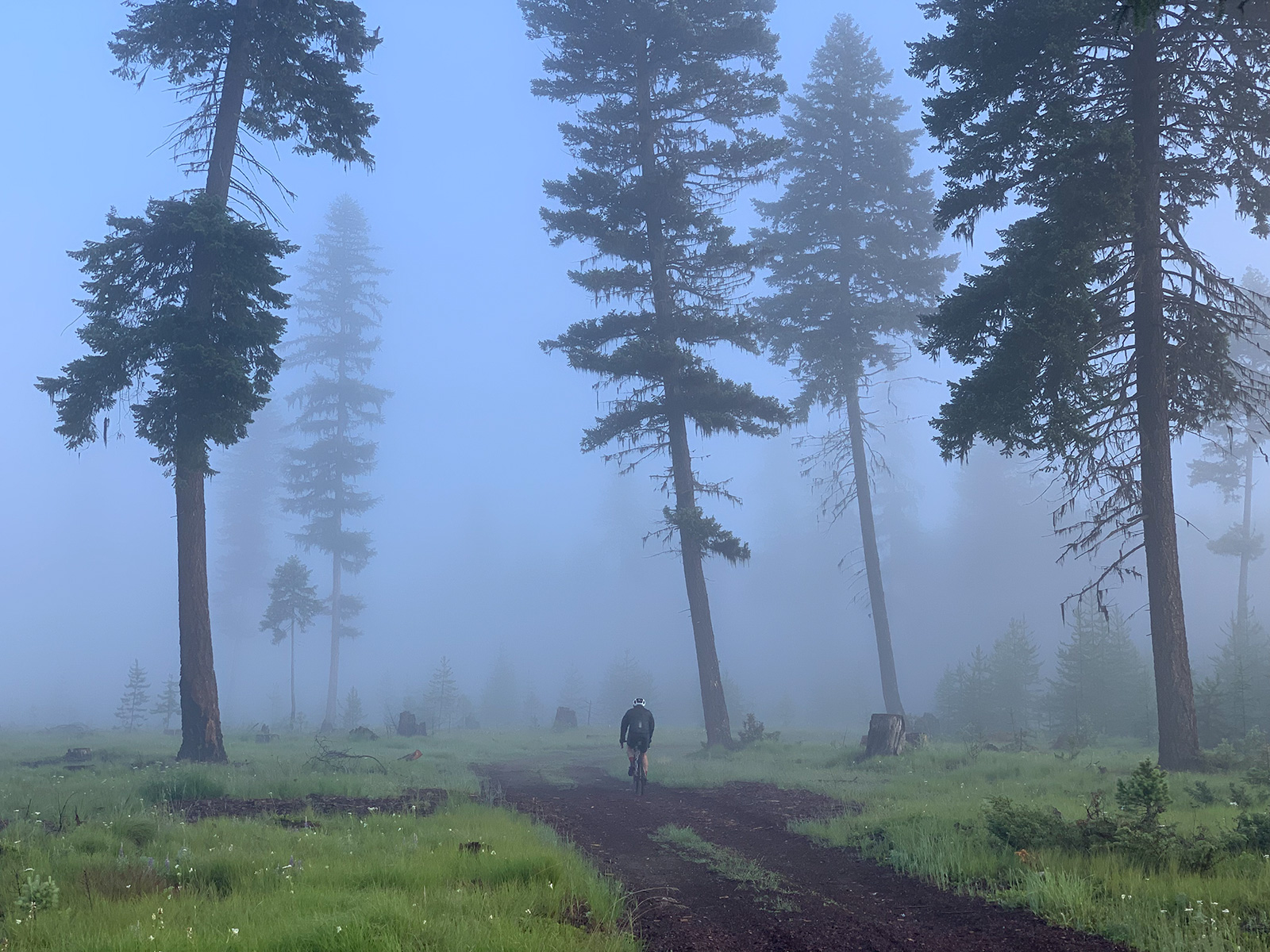
Three years ago, when Michael Vermeulen lined up at his debut Joe Cosley Pancake Ride, a 167-mile gravel bike race across the Whitefish Range featuring more than 17,000 feet of climbing — longer and steeper than even the most challenging stages of the Tour de France — he’d logged more than a thousand training miles to prepare for the grueling ultra-endurance event. He’d joined his local cycling club, added two bikes to his stable and was 40 pounds lighter than he’d been a year earlier. At 56 years old, he felt like he’d signed a new lease on life. He felt ready to race.
And then, straddling his carbon frameset on a remote ribbon of washboarded gravel north of Whitefish, Vermeulen peered through the 4 a.m. darkness and sized up the other cyclists.
“I just remember thinking that they looked like gunslingers. They were lean and sinewy, they had big moustaches and they had dead eyes,” Vermeulen, a financial lender and falconer from Billings, said recently during a break in his daily training regimen, already preparing for the upcoming 2022 cycling event in July. “That is when I realized I was out of my league. I could see that these were young, slim and hardened riders. They were athletes. And I was the only guy who looked like me. And then we were off.”
“I was not prepared for what was to come,” he added.
What came was a relentless series of quad-crushing climbs and bone-rattling descents on a rugged network of undulating gravel roads contouring the Whitefish Range, along a sadistic route engineered by longtime Whitefish local Brad Lamson, who, like the ride’s namesake, projects something of an outlaw persona himself. Part enduro-junkie and part dirtbag desperado, Lamson’s nearly unrivaled knowledge of northwest Montana’s remote backcountry, coupled with his competing passions for cycling, skiing, trail running, mountaineering, river-rafting, and fly-fishing, has earned him the reputation as a rare breed of protean mountain athlete.
“Brad is an incredibly gifted athlete who ages with grace and humility, and although he has an uncanny ability to ruffle feathers and piss people off, he genuinely enjoys sharing these experiences and routes with other people,” said Danni Coffman, a Kalispell attorney and endurance athlete who first met Lamson 15 years ago. “It’s not like he’s guarding all of the secret backcountry ski-touring stashes. He’s gregarious and he wants to connect people to the landscape.”
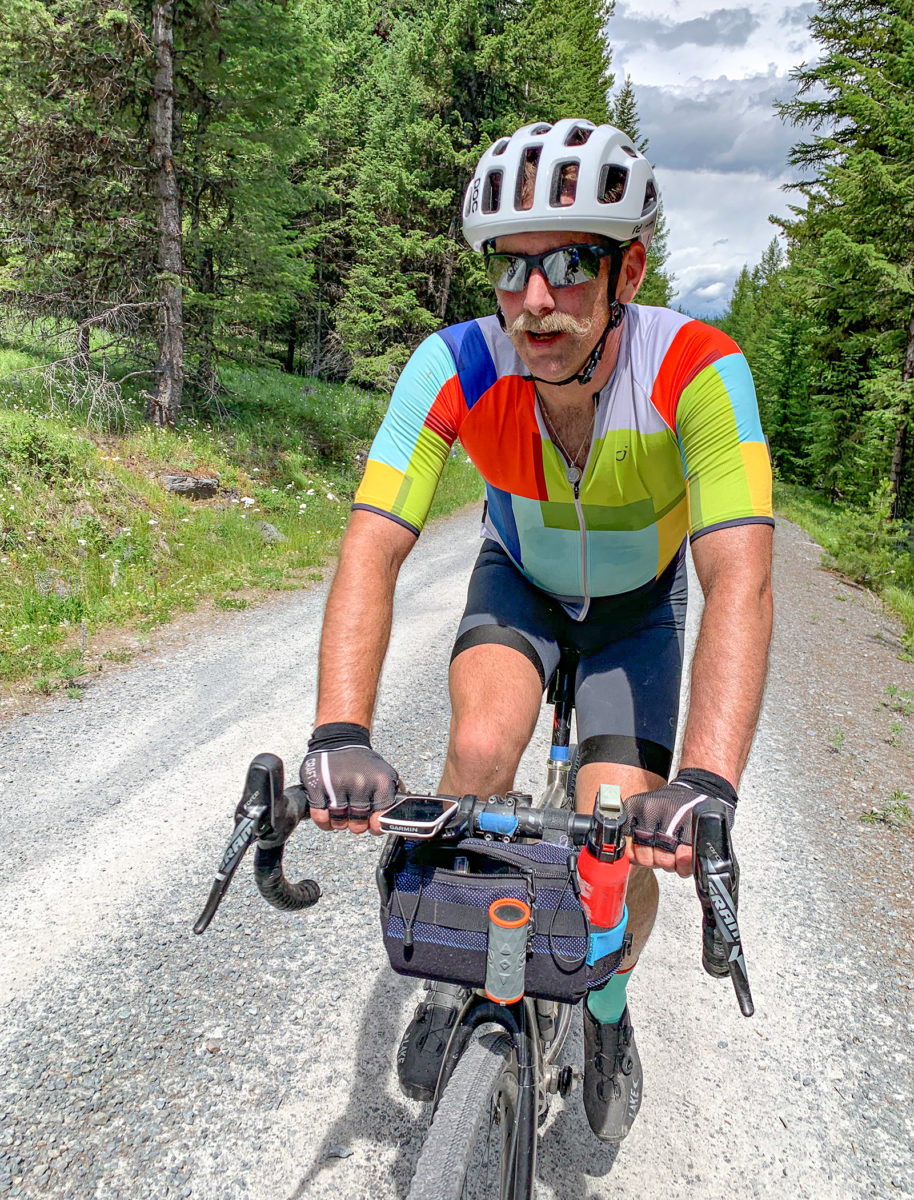
Lamson is so versatile and adaptable, in fact, that his resume reads like it might have been inscribed during a bygone era, one populated by characters like Joe Cosley, the infamous Glacier National Park ranger hired in 1910 by the park’s first superintendent, Maj. William R. Logan, who assembled a motley crew of poachers and petty criminals to serve as the earliest stewards of the park’s suite of wildlife and natural resources.
In the words of Maj. Logan, “it takes a poacher to find a poacher.” To that end, among his first recruits was Cosley, who, according to historians Brian McClung and Dave Renfrow, once ran 70 miles from Polebridge to Waterton Lake and back merely to attend a dance gala, and who was referred to with deference by Blackfeet elders as a “panther on snowshoes” due to his superhuman ability to traverse vast and inhospitable chunks of wilderness.
In the 30-plus years he’s lived in the Flathead Valley, Lamson has supported himself as a carpenter, craftsman and artist, constructing handmade signs for local businesses that still adorn the brick-and-mortar storefronts of Whitefish’s bars and restaurants today. He’s also developed a reputation as a charismatic race director whose roster of low-profile, DIY ultra-endurance events spans two decades, and includes the short-lived but instant-classic Swan Crest 100, Montana’s premiere 100-mile ultramarathon footrace, as well as an under-the-radar 57-kilometer run across the Swan Range that included a pitstop on Six Mile Peak for hot dogs and sliced watermelon.
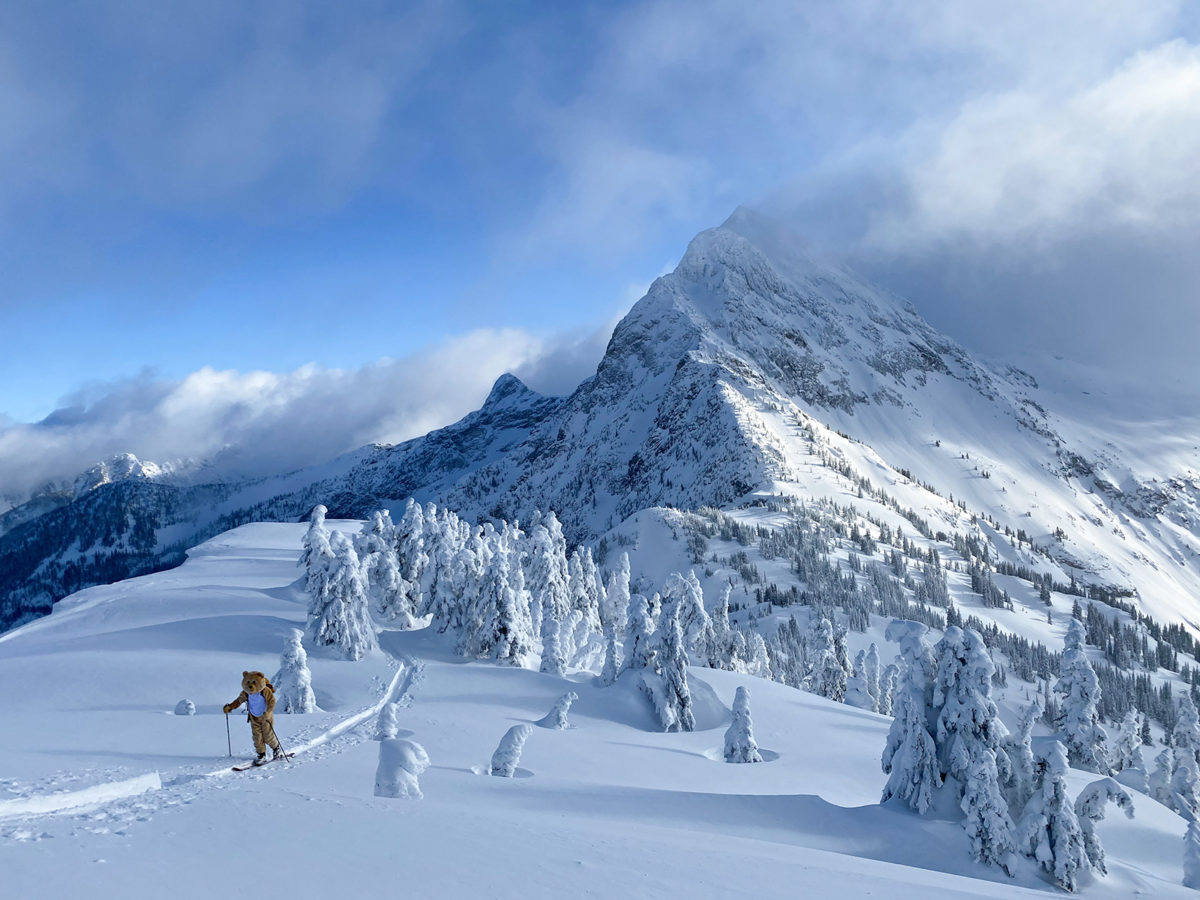
An accomplished endurance athlete who as a younger competitor achieved success both on the professional cycling circuit and as an ultrarunner, Lamson, now in his mid-50s, has spent the past year convalescing from injury, allowing him to focus his energy and efforts on the grassroots “gravel grinder” that is the Joe Cosley Pancake Ride (JCPR). The event is an opportunity to showcase a network of unpaved U.S. Forest Service roads criss-crossing the Whitefish Range, although the JCPR route, as well as its distance, terrain profile and the mountain ranges it traverses, changes from year to year. The first year traversed a classic route from Whitefish to Polebridge over Red Meadow Pass, but included some of Lamson’s signature flourishes.
“The inaugural ride was this classic loop that everyone wanted to do over Red Meadow and back to Whitefish, but that’s kind of boring so we made the route climb over the summit of Big Mountain, then go over Red Meadow, up Cyclone and over to four courners, then up to the top of Werner Peak and back,” Lamson said. “There’s really no sense in riding the same well-worn path every year. So the route creativity, that kind of dictates the distance.”
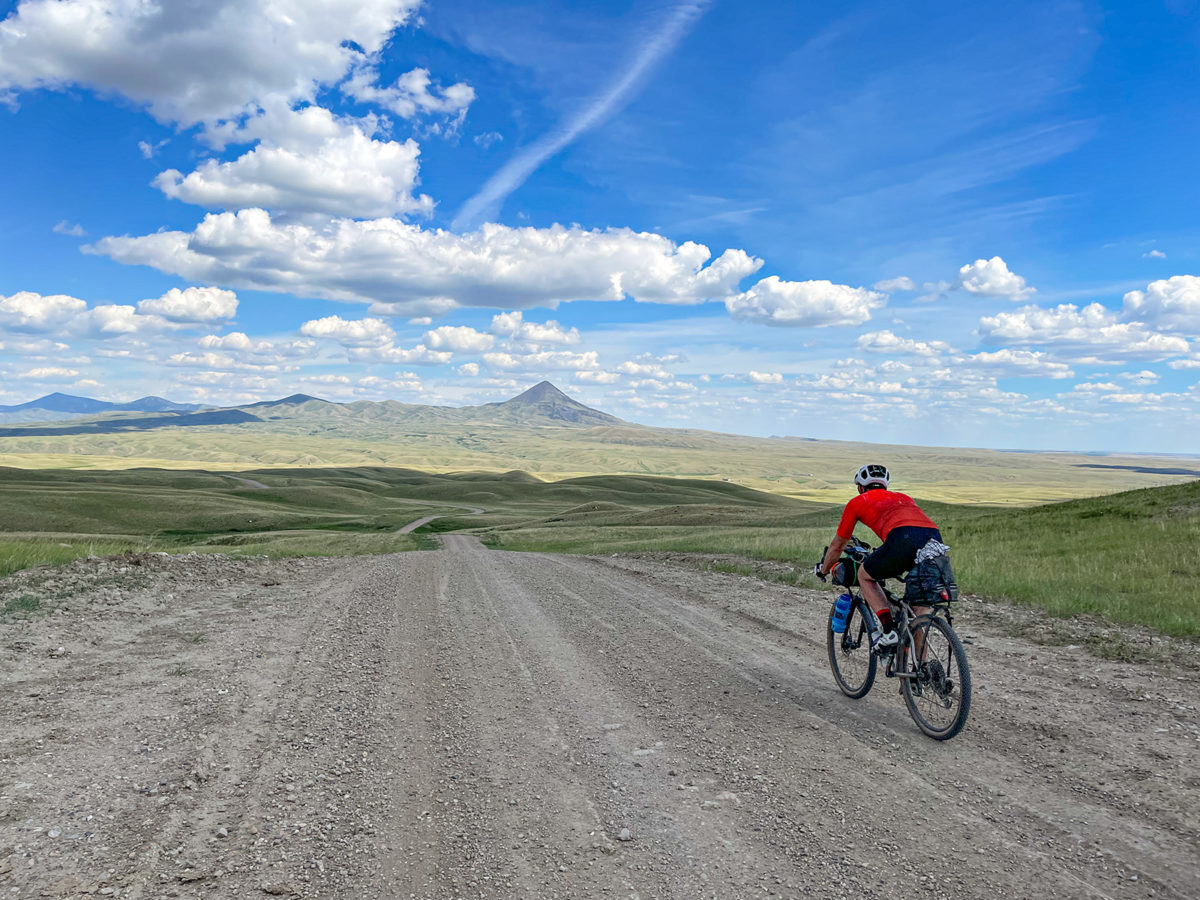
Lamson began devising the JCPR in earnest eight years ago, while participating in the Trans Iowa Gravel Race, a self-navigated, self-supported, 300-plus mile bike race held in late April in Iowa. Widely considered the original “gravel grinder,” the Trans Iowa has since spawned scores of other races that have seized on the bareknuckled, backwoods spirit of the sport’s origins while incorporating a more solvent business model.
“There will be a pickle jar for donations that specifically support the inner workings of the Pancake Ride at the sign in. If you like the Pancake Ride and you would like to see it continue, consider a donation,” according to the JCPR’s official race website for the 2022 event.
Neither the solvency nor the booming business of gravel-grinder events, the popularity of which have exploded across the U.S. in recent years, holds any interest for Lamson. In order to maintain the event’s low-key profile, he has capped participation at each of the five JCPR events that have occurred since 2017, charging riders a $50 minimum entry donation to a local nonprofit. For the first five years, he donated the money to the Abbie Shelter, a service provider for victims of domestic violence, and will donate the proceeds from this year’s event to the Nate Chute Foundation, which raises awareness and provides resources for suicide prevention.
“Initially, the impetus for the Joe Cosley Pancake Ride was … it was just an excuse to get a bunch of people together and show off the scenery and have a good time,” Lamson said. “It wasn’t any kind of a moneymaker or even a serious race. I just wanted to design a fun, grassroots experience in some of the coolest places around. And like everything else, I wanted to make it difficult.”
The JCPR’s degree of difficulty is unequivocal, as is the spirit of community inclusion and volunteerism surrounding the event, even if it claims to be “unsupported.” It mostly is, mind you, and the official race website bristles with ominous caveats warning riders to be prepared “physically, mentally and mechanically” for any middle-of-the-night mishaps that might occur along the way. It could be hours before help arrives, and a high degree of physical fitness and mental tenacity is required to complete the route. Still, the success of the event has hinged on the help it’s received from Cricket Butler of the Whitefish Bike Retreat, located near Beaver Lake, where JCPR participants started and finished the first three years, as well as the Trego Pub and General Store northwest of Whitefish, which now serves as the start and finish for JCPR, as well as a venue for post-race merrymaking thanks to the generosity of owners Todd and Lani Swan.
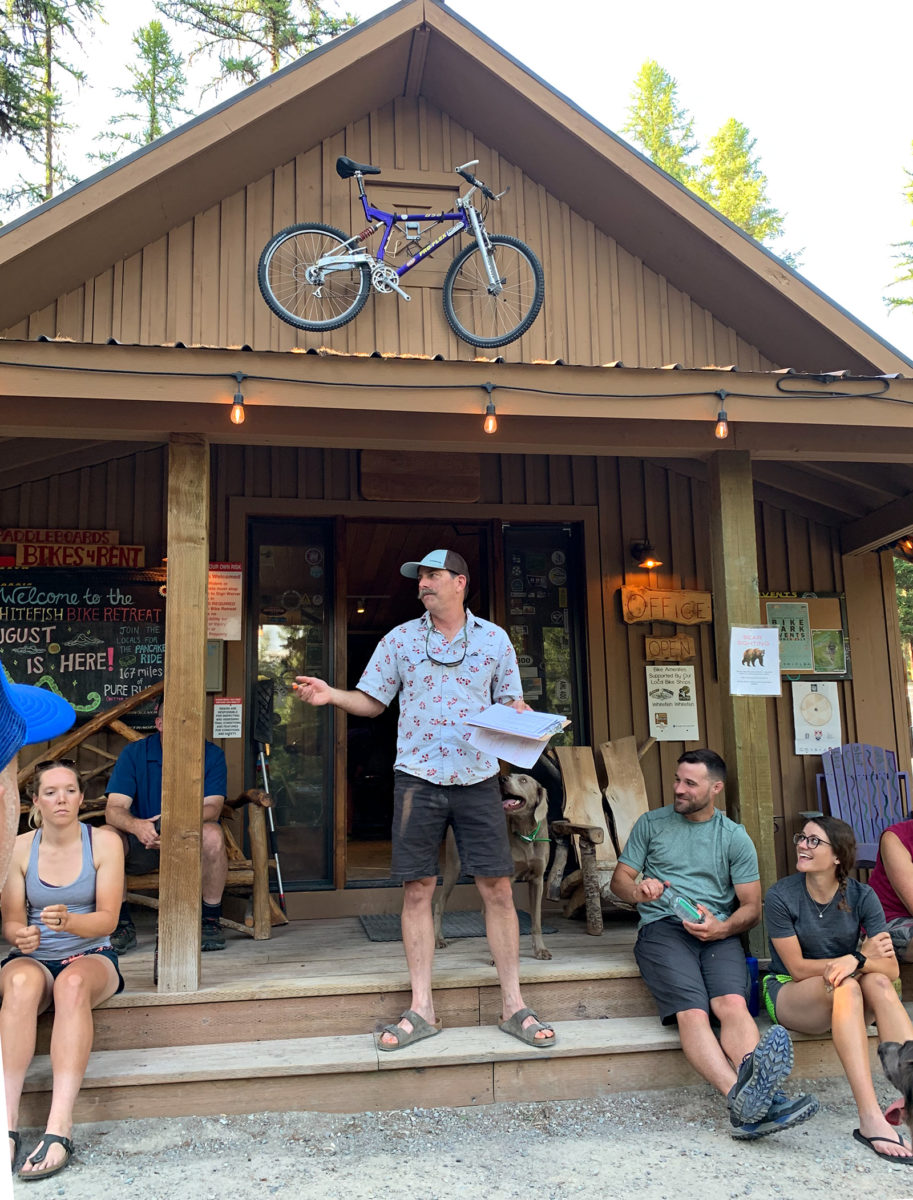
“His vision is sort of laidback and geared toward just making it fun for everyone, but this is the culmination of years of poring over maps and then ground-trooping the routes and figuring out when the roads are rideable, when the mountain passes melt out, what’s going to be accessible to vehicles for food and water drops. It’s a lot of work on the front end,” Coffman said.
That front-end work includes hosting the Joe Cosley Pancake Ride website, which is brimming with course information, links to GPS route files and tongue-in-cheek references to the JCPR’s billing as Montana’s “Premier Gravel Event.”
“Over the years (even before ‘GRAVEL’ was mainstream) we’ve been riding the thousands of miles of roads and single-track in Northwest Montana,” the website boasts. “From our adventures we have put together the some of the best tracks that the area has to offer. So, why spend your time riding the same course twice in a row, or riding the supposed ‘classic route(s)’ when there is a much better alternative?”
In a breaking development leading up to the 2022 edition of the JCPR, Lamson announced that Joe Cosley is retiring, with famed early-20th century Montana bootleggers Lavinia Gillman and Birdie Brown taking the reins of the newly rebranded “Bootlegger’s Series.”
Another longtime Whitefish local well-known for his skiing and biking adventures is Phil Grove, who credits Lamson with helping mentor him as he developed his chops as a backcountry skier and biker.
“He kind of took me under his wing and taught me where and how to explore,” Grove said. “I had no formal training or education at that point, and Brad taught me the ins-and-outs of the local mountain ranges. He has more knowledge about the Middle Fork and the Whitefish and Salish Ranges than anyone I’ve met. He could be a guide back there.”
For the first four iterations of the JCPR, Grove awoke in the middle of the night in order to motor his Volkswagen Westfalia deep into the mountains and establish an aid station at the course’s high point. Two years ago, he parked the vintage van atop Mount Marston and used his portable kitchen to serve up pancakes and sausages to the famished riders.
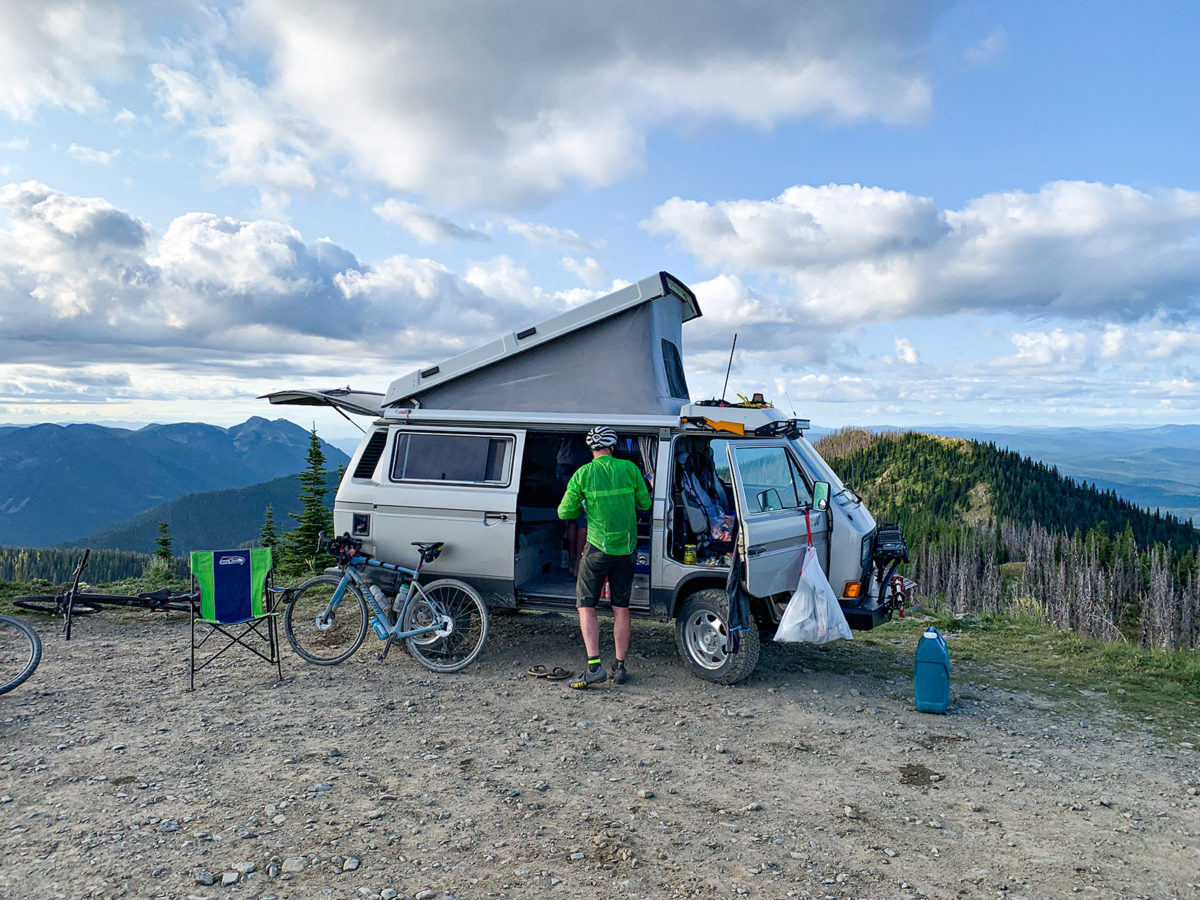
“That was a memorable year,” Grove recalled. “Brad sort of likes to throw shade at the sports-nutrition-industrial-complex, so there’s a lot of junk food and Coca-Cola. Happy calories, you know? Pancakes and laughs.”
For Vermeulen, there weren’t a lot of laughs as the sun sank behind the horizon 18 hours after he began his inaugural JCPR in 2019, which was nicknamed the “Uff Da 167” and by all accounts stands as the most difficult route to date.
“It was more of a ride than I should have done given my experience at the time,” Vermeulen says. “I was not prepared. After it got dark I used up the batteries in my headlamp, so I sat down and waited for another rider I’d met earlier. We cycled together until 2 a.m., which was 22 hours after we’d started. The other rider had a GPS tracker and she sent Brad and Cricket a message. They came out and fetched us and were just as friendly as ever, even though they hadn’t slept either.”
“After that, I was bitten with the bug for adventure on a bike,” Vermeulen said, having now participated in three JCPR events and countless other endurance bike races, including a 1,000-mile race.
“When I started riding my bike in 2018, I weighed 230 pounds. At the time of my first Joe Cosley, I was down to 190. I’ve since dropped another 20 pounds,” Vermeullen, who has already paid his nonrefundable JCPR donation for the 2022 event, said recently. “I came to cycling because I was overweight and heavy, but I kept at it because of the magic. You can get on a bike and you can pedal and you can get all the way to the horizon in a day. And you have this incredible sense of freedom. You can just get on this bike and go somewhere.”
For Lamson, who capped off last summer by competing in another of his self-styled endurance events, the Montana Mixed Epic, which traverses the state of Montana along the U.S.-Canada border from west to east, Vermeullen epitomizes the spirit of the Joe Cosley Pancake Ride.
“Mike was absolutely decimated after that first year when we picked him up off the side of the road in the middle of the night,” Lamson said. “He’s been back every year since. He would have to be my favorite pancake rider. He just gets it.”